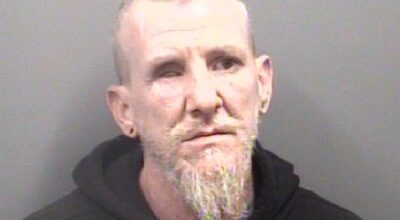Court considers records rules for college police
Published 12:00 am Thursday, February 14, 2013
RALEIGH (AP) — A case that started with a 19-year-old Elon University student’s 2010 arrest for underage drinking and resisting an officer is forcing North Carolina’s Supreme Court to decide whether campus police at private colleges must be as transparent as their municipal law enforcement peers.
A reporter for a campus television news program asked the university’s police chief for a copy of the arrest record. What Nick Ochsner got said nothing about whether the officer had to chase down the student or how he was alleged to resist arrest, said his mother, attorney Ann Ochsner.
The campus police said it didn’t have to produce anything more because, as part of a private university, a state law requiring a government agency to turn over public records on request didn’t apply.
The Supreme Court heard arguments Wednesday in a case that could define the role of officers who aren’t clearly public officials yet have arrest authority other private employees don’t have.
Ochsner filed a lawsuit contending there is nearly nothing that better describes government power than the lawful authority to arrest someone.
“If an entity or a person commissioned by statute has the power of arrest, then all the records related to that would become public records,” Ann Ochsner told the Supreme Court.
At issue is the 2005 state law empowering campus police to enforce laws and investigate crimes. A separate law allows companies to set up police departments.
Campus and company police enforce laws just like municipal law enforcement officers on school property, public hospitals, shopping centers, and office buildings. But company and campus police are also different. For example, they have to carry liability insurance coverage of at least $1 million per incident for personal injury or property damage.
“The issue here,” said Elon University’s attorney Christopher Jones, “is unless you are a public law enforcement agency all criminal records, or records of criminal investigations, are not public.”
The Supreme Court addressed private college police in 2011, ruling that Davidson College can keep its own force because the school is not so closely aligned with a religious denomination that it mixes church and state. North Carolina has three dozen private colleges and universities educating about 87,000 students.
Other court decisions have said a community hospital or even a private company could be considered an agency of government depending on how independent it is of government supervisory authority.
Jones argued that courts delegate to lawyers the ability to subpoena witnesses and documents, but that doesn’t make him part of state government.
Justice Paul Newby countered that lawyers don’t have the power to force someone to do something they’re unwilling to do, but must ask the courts to force the issue.
“As an attorney you have some special responsibilities. But you don’t have any power,” Newby said. “We have granted Elon University police officers the power to arrest, the power to conduct searches and seizures. These are very special and unique governmental activities. I don’t see how that is the same comparison with an attorney being able to subpoena.”



